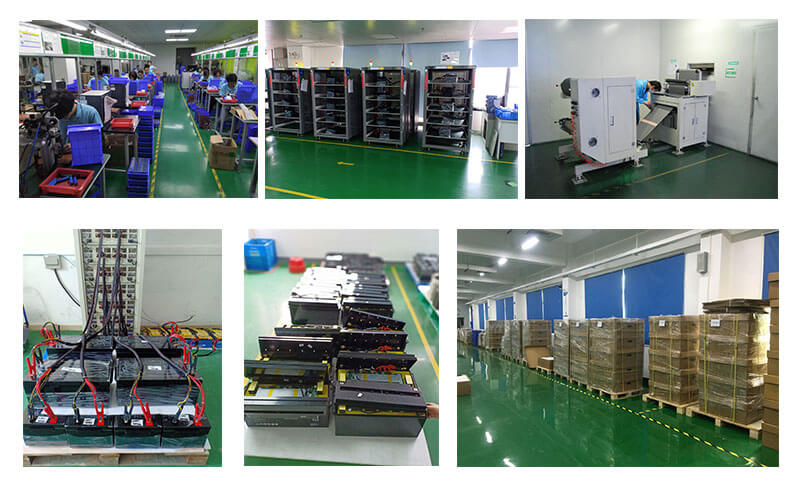بطارية الليثيوم تُحدث ثورة في المعدات العسكرية
In recent years, the development and advancements in lithium battery technology have revolutionized various industries, and the military sector is no exception. The utilization of lithium batteries in military equipment has provided numerous advantages, enhancing soldiers’ capabilities and improving overall operational efficiency. This article aims to explore the significant impact of lithium batteries on military equipment.
Lithium batteries have become a game-changer in the military industry due to their exceptional energy density and long cycle life. This high energy density allows military equipment to be equipped with lightweight and compact power sources, reducing the overall weight soldiers carry into the field. This weight reduction not only increases soldiers’ mobility but also allows for the incorporation of additional essential equipment, enhancing their effectiveness in combat situations.
Moreover, lithium batteries offer a longer cycle life compared to traditional lead-acid batteries. This means that they can endure a greater number of charging and discharging cycles before their performance begins to deteriorate. As a result, military equipment powered by lithium batteries can last longer in the field without requiring frequent battery replacements. This increased operational time reduces the need for resupply missions and enhances soldiers’ autonomy during extended missions.
One of the most significant advantages of lithium batteries in military equipment is their ability to deliver high power output quickly. This instantaneous power delivery is crucial in combat situations where rapid responses are necessary. Equipment such as communication systems, night vision goggles, and unmanned aerial vehicles heavily rely on lithium batteries to ensure reliable and uninterrupted power supply. The ability to quickly recharge these batteries also enables soldiers to spend less time waiting for equipment to power up, allowing them to focus on their mission.
Furthermore, lithium batteries have a lower self-discharge rate compared to conventional batteries. This means that they can retain their charge for longer periods without being in use. This characteristic is particularly beneficial for military equipment that may be stored for extended periods between deployments. Soldiers can have confidence that their equipment will be ready for use when needed, eliminating concerns about battery performance and reliability.
Another area where lithium batteries have made a significant impact is in the realm of renewable energy integration. Military bases and forward operating stations are increasingly utilizing renewable energy sources such as solar panels and wind turbines. Lithium batteries play a critical role in storing the energy generated from these sources, providing a reliable backup power supply. This reduces the military’s reliance on fossil fuels and ensures a more sustainable and environmentally friendly approach to power generation.

Despite the numerous advantages, there are also challenges associated with the use of lithium batteries in military equipment. One of the primary concerns is the potential for thermal runaway, which can result in battery fires or explosions. However, extensive research and safety measures have been implemented to minimize such risks. Additionally, the costs associated with lithium batteries are generally higher compared to traditional battery technologies. However, as technology continues to advance, prices are expected to decrease, making lithium batteries more accessible for military applications.
The utilization of lithium batteries in military equipment has revolutionized the sector in numerous ways. The high energy density, long cycle life, and quick power delivery of lithium batteries have enhanced soldiers’ capabilities and improved operational efficiency. Moreover, their ability to retain charge over extended periods and integrate with renewable energy sources has contributed to a more sustainable and environmentally friendly approach. While challenges remain, the benefits of lithium batteries in military equipment far outweigh the drawbacks. As technology continues to evolve, it is expected that lithium batteries will continue to play a crucial role in shaping the future of military operations.
-
 Essential Emergency Equipment: The Starter Battery When it comes to preparedness for emergency situations, there are a few key pieces of equipment that every person should have on hand. One of the most important of these items is a starter battery, also known as a jump starter or a booster pack. In this article, we will explore what a...اقرأ أكثر
Essential Emergency Equipment: The Starter Battery When it comes to preparedness for emergency situations, there are a few key pieces of equipment that every person should have on hand. One of the most important of these items is a starter battery, also known as a jump starter or a booster pack. In this article, we will explore what a...اقرأ أكثر -
 In today's world, uninterrupted power supply is of utmost importance for both domestic and industrial usage. A power outage can cause major disruptions in daily life or even lead to significant financial loss in industries. Hence, the need for a reliable and efficient on-board battery charger that can provide uninterrupted power supply is paramount. One such device that is...اقرأ أكثر
In today's world, uninterrupted power supply is of utmost importance for both domestic and industrial usage. A power outage can cause major disruptions in daily life or even lead to significant financial loss in industries. Hence, the need for a reliable and efficient on-board battery charger that can provide uninterrupted power supply is paramount. One such device that is...اقرأ أكثر -
 Why Choose Lifepo4 Battery Lithium iron phosphate battery, commonly known as LiFePO4 battery, also known as LFP battery ("LFP" stands for "lithium iron phosphate"), is a lithium-ion battery with lithium iron phosphate as the positive electrode material. Because the lithium iron phosphate material is more durable, safe, and fast charging, the Lifepo4 battery pack has at least five advantages: 1...اقرأ أكثر
Why Choose Lifepo4 Battery Lithium iron phosphate battery, commonly known as LiFePO4 battery, also known as LFP battery ("LFP" stands for "lithium iron phosphate"), is a lithium-ion battery with lithium iron phosphate as the positive electrode material. Because the lithium iron phosphate material is more durable, safe, and fast charging, the Lifepo4 battery pack has at least five advantages: 1...اقرأ أكثر -
 Lithium iron phosphate (LiFePO4) batteries, also known as LFP batteries, have become increasingly popular in recent years due to their long life, high energy density, and excellent safety features. As demand for these batteries grows, the importance of quality control in the manufacturing process becomes even more crucial. In this article, we will explore the reasons why quality control is...اقرأ أكثر
Lithium iron phosphate (LiFePO4) batteries, also known as LFP batteries, have become increasingly popular in recent years due to their long life, high energy density, and excellent safety features. As demand for these batteries grows, the importance of quality control in the manufacturing process becomes even more crucial. In this article, we will explore the reasons why quality control is...اقرأ أكثر -
 Lithium-ion batteries are widely used in electronic devices such as smartphones, laptops, and electric vehicles due to their high energy density and longer lifespan compared to other battery types. Charging a lithium-ion battery with a power supply is a simple process, but it requires caution to avoid damaging the battery or causing a safety hazard. In this article, we will...اقرأ أكثر
Lithium-ion batteries are widely used in electronic devices such as smartphones, laptops, and electric vehicles due to their high energy density and longer lifespan compared to other battery types. Charging a lithium-ion battery with a power supply is a simple process, but it requires caution to avoid damaging the battery or causing a safety hazard. In this article, we will...اقرأ أكثر -
 Introduction: The high capacity 12V 100Ah LiFePO4 battery is a cutting-edge energy storage solution that offers numerous benefits over traditional lead-acid batteries. This advanced technology has gained popularity in various industries, including renewable energy, electric vehicles, and portable power applications. In this article, we will explore the features and advantages of the high capacity 12V 100Ah LiFePO4 battery. 1....اقرأ أكثر
Introduction: The high capacity 12V 100Ah LiFePO4 battery is a cutting-edge energy storage solution that offers numerous benefits over traditional lead-acid batteries. This advanced technology has gained popularity in various industries, including renewable energy, electric vehicles, and portable power applications. In this article, we will explore the features and advantages of the high capacity 12V 100Ah LiFePO4 battery. 1....اقرأ أكثر -
 In today's fast-paced world, people rely heavily on technology to complete their daily tasks. From smartphones to laptops, from electric vehicles to renewable energy sources, all require a reliable and long-lasting power source. The 12V 100Ah LiFePO4 battery is one of the best options available in the market today. LiFePO4 stands for Lithium Iron Phosphate, a type of lithium-ion...اقرأ أكثر
In today's fast-paced world, people rely heavily on technology to complete their daily tasks. From smartphones to laptops, from electric vehicles to renewable energy sources, all require a reliable and long-lasting power source. The 12V 100Ah LiFePO4 battery is one of the best options available in the market today. LiFePO4 stands for Lithium Iron Phosphate, a type of lithium-ion...اقرأ أكثر

